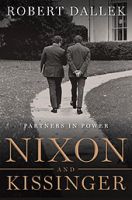Liberals outnumber conservatives in the academy. That’s a known fact. What explains this divergence? Some have attributed it to liberals creating a hostile environment for conservatives. But new research calls that view into question and offers an intriguing alternative explanation.
As described in The Chronicle of Higher Education, Matthew Woessner (a conservative academic) and April Kelly-Woessner (a liberal academic) looked at surveys completed by 15,569 college seniors, and what an analysis of the data suggests is that “the personal priorities of those on the left are more compatible with pursuing a Ph.D.” “Liberalism is more closely associated with a desire for excitement, an interest in creative outlets, and an aversion to a structured work environment. Conservatives express greater interest in financial success and stronger desires to raise families. From this perspective, the ideological imbalance that permeates much of academia may be somewhat intractable.” Or, put differently, this imbalance may not be going away any time soon.
To delve further into their research, you can read their report online here.


